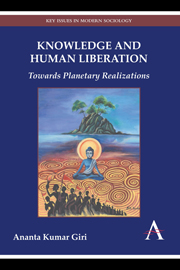Book contents
- Frontmatter
- Contents
- Preface
- Acknowledgments
- Foreword
- Introduction: The Calling of Transformative Knowledge
- Part I Nurturing the Garden of Transformational Knowledge: Roots and Variants
- Part II Rethinking Knowledge
- 6 Some Recent Reconsiderations of Rationality
- 7 Contemporary Challenges to the Idea of History
- 8 Rule of Law and the Calling of Dharma: Colonial Encounters, Post-colonial Experiments and Beyond
- 9 Compassion and Confrontation: Dialogic Experiments with Traditions and Pathways to New Futures
- 10 Rethinking Pluralism and Rights: Meditative Verbs of Co-realizations and the Challenges of Transformations
- 11 The Calling of a New Critical Theory: Self-Development, Inclusion of the Other and Planetary Realizations
- Part III Aspirations and Struggles for Liberation: Towards Planetary Realizations
- Afterword
- Advance Praise
6 - Some Recent Reconsiderations of Rationality
from Part II - Rethinking Knowledge
Published online by Cambridge University Press: 05 May 2013
- Frontmatter
- Contents
- Preface
- Acknowledgments
- Foreword
- Introduction: The Calling of Transformative Knowledge
- Part I Nurturing the Garden of Transformational Knowledge: Roots and Variants
- Part II Rethinking Knowledge
- 6 Some Recent Reconsiderations of Rationality
- 7 Contemporary Challenges to the Idea of History
- 8 Rule of Law and the Calling of Dharma: Colonial Encounters, Post-colonial Experiments and Beyond
- 9 Compassion and Confrontation: Dialogic Experiments with Traditions and Pathways to New Futures
- 10 Rethinking Pluralism and Rights: Meditative Verbs of Co-realizations and the Challenges of Transformations
- 11 The Calling of a New Critical Theory: Self-Development, Inclusion of the Other and Planetary Realizations
- Part III Aspirations and Struggles for Liberation: Towards Planetary Realizations
- Afterword
- Advance Praise
Summary
…the opposition of self and other is mediated by the emergence of the other self and the common human language of “oneself.” This human language is the real and true non-dualist locus of culture, labor and politics, whether the other should be God, non-human nature, the world or other human selves, masculine or feminine, native or foreign.
—J. P. S Uberoi, The European Modernity: Science, Truth and Method (2002, 113)The world as we understand it at present may be the same world as it always was but we no longer look to Physics to underpin the myth of Stability, and provide the same comforts as before. The claims of contemporary sciences, both natural and human, are a good deal more modest, seeking neither to deny nor to explain away the contingency of things.
—Stephen Toulmin, Return to Reason (2001, 209–10)Perhaps the names of persons whose saying signifies a face – proper names, in the middle of all these common names and common places – can resist the dissolution of meaning and help us to speak. Perhaps they will enable us to divine, behind the downfall of discourse, the end of a certain intelligibility and the dawning of a new one. What is coming to a close may be a rationality tied exclusively to the being that is sustained by words, the Said of the Saying.
—Emmanuel Levinas, Proper Names (1996, 4–5)The Problem
The concept of rationality has been subjected to numerous critiques in the history of modernity, and all these critiques have been helpful in opening rationality to cross-cultural translations and examinations.
- Type
- Chapter
- Information
- Knowledge and Human LiberationTowards Planetary Realizations, pp. 119 - 126Publisher: Anthem PressPrint publication year: 2013

